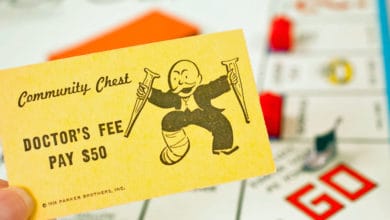Preparation for the medical boards should be an extension of the care a future physician intends to provide to their patients. Amid the many demands medical students face, it is imperative to carve out time for dedicated and focused study.
During medical school, the hardest transition is often sifting through and absorbing tremendous amounts of information. The foundation of medicine relies on a sound understanding of the material and concepts but is supplemented by numerous facts. The anatomy and physiology of the human body is the knowledge base that allows physicians to make critical decisions regarding diagnosis, treatment, and incorporating clinical data. It is imperative to be able to understand cellular relationships and interrelated organ systems. The first board exams of medical school explore this content as well as basic identification of disease processes. Also, the board exams (USMLE/COMLEX), test an individuals ability to utilize relevant data while discarding irrelevant material.
While still in pre-clinical years, time should be spent going through textbooks and solidifying a deep understanding of medicine. It is also during this time that good habits are formed. These include dedicating time to exercise, relationships, family, and other select personal priorities. Establishing a balance during this time can be applied to clinical years, residency, and life as an attending physician.
When approaching the COMLEX/USMLE, the test can be approached as questions testing unique facts and questions requiring critical decision-making and reason. The former of these two requires repetition and memorization. An individual must put in the time and effort to retain these facts. To help specifics items stick, it is helpful to recall and recite any of these items throughout the day or whenever the topic presents itself. These often-obscure facts should be considered free points during the test. They require little thought, and if approached correctly, can be answered rapidly and confidently. Quickly answering these questions will free up more time for the questions that require deliberation. The questions that involve more thought are often those with long stems and information specific to the patient, the disease process, treatment, and potential complications.
Test makers are being encouraged to write more third-order questions with the goal being to challenge physicians ability to make decisions on behalf of the patient. When approached with these questions, it is imperative to organize the information in your mind. First, identify the question being asked. Clear compartmentalization is often the last line in a long vignette. Then evaluate the patient presented and the clinical symptoms with the individual question in mind. Lastly, if the question involves more than diagnosis, identify the treatment and consider complications again with the patient in mind. Establishing a habit and routine in approaching questions will allow testing to flow as an extension of an individuals studying, as opposed to a stressful and new encounter.
When in the third and fourth year of education, a medical student must balance full-time clinical duties with academic responsibilities. At this time, establishing set periods of reading is imperative. Although during these rotations, a person learns how to apply medical knowledge, they must learn what the standard of care is, what the body of evidence suggests, and where the clinician deviates or makes exceptions — reading before work or after work is a must. Additionally, during patient encounters, learning opportunities should be highlighted whereby a medical student, resident, or physician can reexamine something they have read and use that time to discuss the topic. Even if time does not allow formal teaching, a proactive individual finds dozens of opportunities throughout the day to exercise their knowledge base.
Lastly, the most critical aspect of medical training in life is time. There will be demands on time like few other individuals experience in the modern world. A medical student and resident must be deliberate with their time, and prioritize a few things, and do those select things well. Ensure that over the near decade of training that life has not entirely passed by unengaged and that the care a physician gives their patients is the most outstanding that they could obtain.



